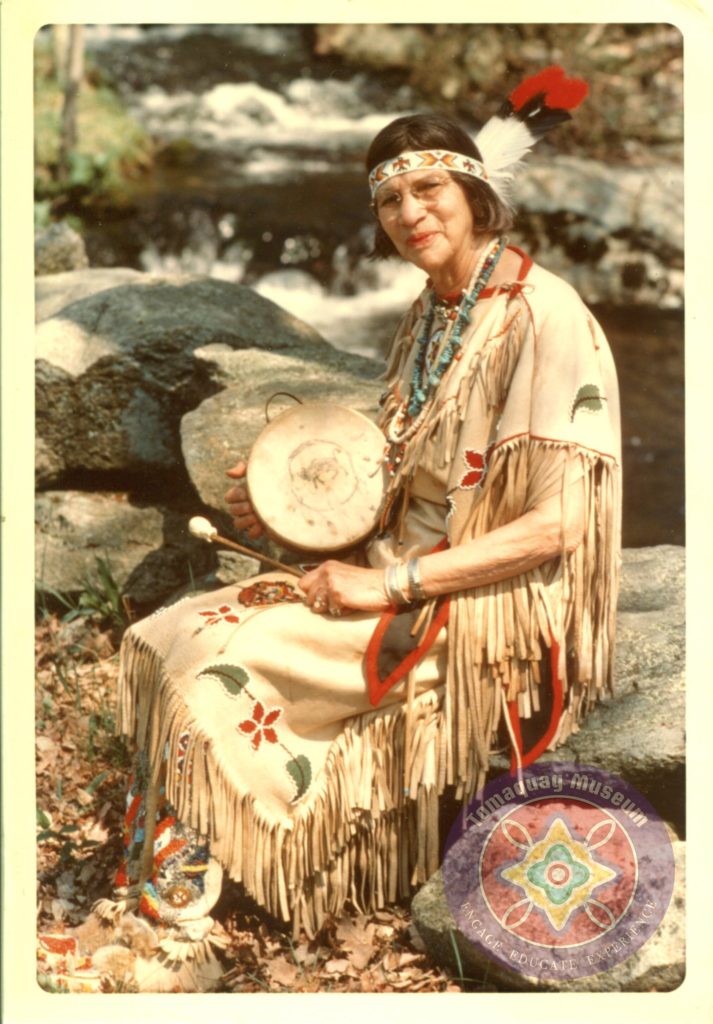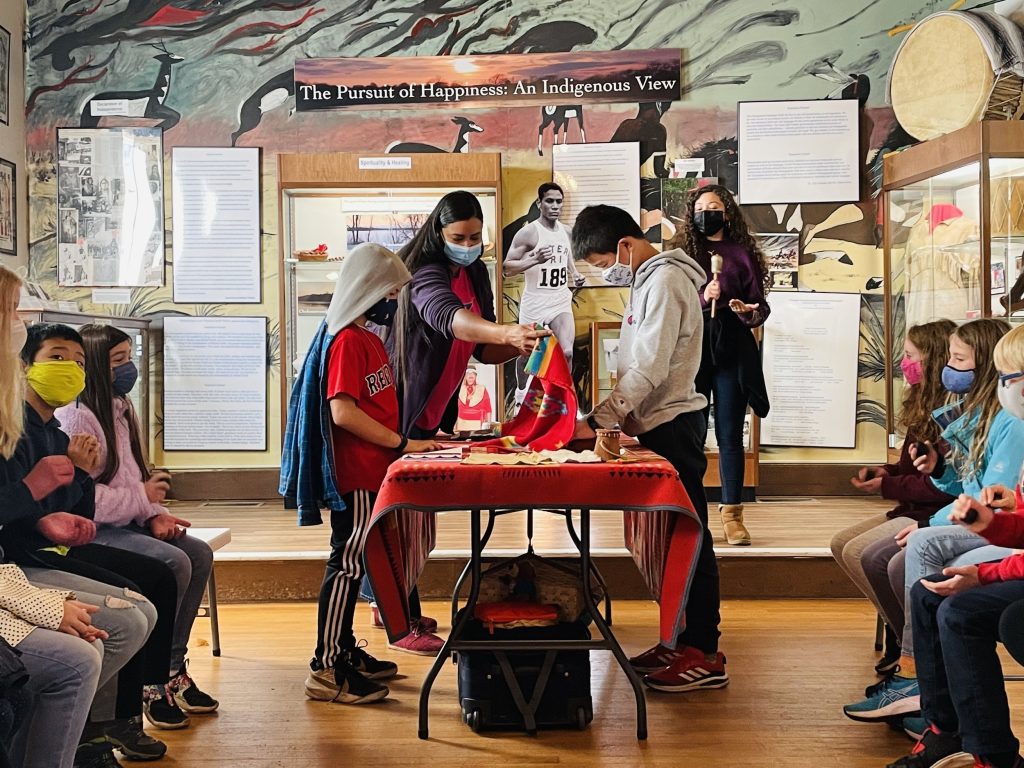
The Tomaquag Museum in Exeter, Rhode Island is an organization that seeks to educate everyone of the Indigenous cultures of the Dawnland (southern New England). They seek to help people understand the impact of colonization, to reconcile the past, and to empower future generations by sharing their values and emphasizing traditional ethics, morals, and philosophy.
The museum endeavors to show the resilience of Indigenous cultures and modern day relevance. It is their mission to empower native peoples by connecting them with resources and providing them opportunities to have their voices heard. Showing the value of artifacts, documents, art, and lived experiences brings authenticity to the museum. Indigenous people are a people of perseverance and resilience, and show this by retelling first-person histories of their ancestors. The ultimate goal is to heal as a people.
The museum was founded in 1958 by anthropologist Eva Butler with guidance provided by Princess Red Wing (Narragansett / Wampanoag). It originated in Tomaquag Valley, a small hamlet in Ashaway, located in the town of Hopkinton. Since the early 1970s, it has been located in Arcadia Village in Exeter. It is Rhode Island’s only museum entirely dedicated to telling the story of Indigenous people and is also the only museum operated by Indigenous people.
In 2003, they opened the Nuweetoun School for grades K–8 which provided cultural immersion for tribal children. Many of these children have returned over the years as educators and presenters. In 2016, they were awarded the National Medal for museum and library services, the first museum in Rhode Island to ever receive the prestigious award. Currently, plans are underway to develop a new facility as they’ve outgrown their existing space.
An arts and wellness series is put on by the Museum which combines science, art, traditional ecological knowledge, cultural knowledge, and the life experience of presenters and educators. There is a focus on the connection between humans and the natural world. In the modern age more and more people, particularly Indigenous people, feel isolated from the world around them. This series seeks to educate and provide a way to form a connection between people and the planet.

Revitalizing traditions is one way that they create sacred space. It is important to realize that sacred space can be created anywhere if we are in balance with our surroundings. Specialized events are hosted that focus on art, culture, and food in an effort to combat daily oppression that native people face.
Off-site programs, including lectures and cultural presentations are also provided as a way to bring Native culture, traditional arts, and history to the public at large. These educational programs include specialized tours, Native games, Indigenous foods, discussions of the ecology of Mother Earth, Eastern Woodland slide presentations, as well as educator workshops, conferences, books, and curricula on contemporary issues and events.
There is an hour-long, guided Museum program that connects visitors to Indigenous arts, culture and history via an interactive presentation and tour of the Museum’s exhibits.
Visitors may also participate in the Museum’s game program, which provides a view into traditional Eastern Woodland games originally developed by Indigenous people to build community, teach necessary skills, entertain, and sometimes aid in spiritual practice. Visitors are informed what role the games played in traditional Indigenous communities and shown how Indigenous sports and athleticism are still upheld today. Once the educational section is completed, visitors are invited to take part in the games.
The Museum also offers a Traditional Ecological Knowledge program, which includes a hike through the grounds and the chance to explore Indigenous plants and learn of their uses in the Indigenous community. The Museum’s art program is a chance to get creative and learn a traditional craft of your choosing. The storytelling program introduces visitors to the craft of traditional storytellers and provides the opportunity to hear these specialized stories firsthand.
The Museum also offers virtual programs, which began during COVID and the Museum has continued as a way to digitally provide most of the services they provide in person.
The mission and goal of the Tomaquag Museum has never been more important. Only by understanding the past and our connection with our environment can we hope to meet the challenges and trials the future will surely bring. •
For more information on the Tomaquag Museum’s tours, programs, and events, visit tomaquagmuseum.org or call (401) 491-9063. The Tomaquag Museum is located at 390A Summit Rd, Exeter.


